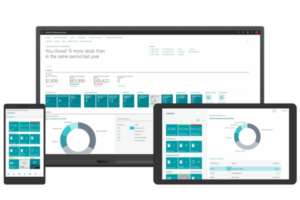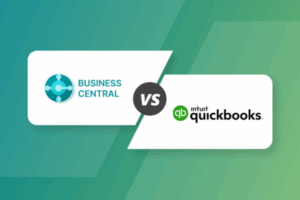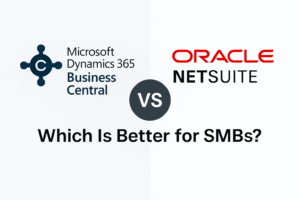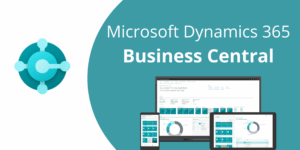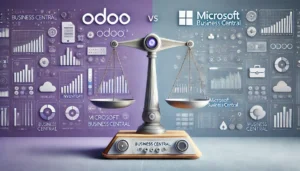Understanding ERP and Its Importance
First, let’s try to understand what ERP means. ERP helps founders manage their businesses by integrating various functions into a single system, such as:
- Finance
- Human resources
- Inventory management
- Supply chain management
ERP systems can automate and integrate many business processes. They provide a centralized database that lets all departments easily access and share information in real-time. Sharing a database eliminates the need for manual data entry and reduces the risk of errors.
Role in Business Processes
With ERP systems, organizations manage their business processes effectively. They can have a holistic & interpretable view of their operations. This way, ERP systems let organizations identify bottlenecks and inefficiencies very easily.
Benefits of Effective ERP Implementation
- Improved Efficiency: Automate various business processes and reduce the need for manual data entry
- Decision-Making: Access company data in real-time so you can make critical decisions easily
- Increased Flexibility: Customize the ERP to meet the specific needs of your organization
- Enhanced Collaboration: Get centralized database to improve collaboration and communication
Common Pitfalls in ERP Implementation
Now, we can start talking about some of the most common pitfalls facing organizations when in the ERP implementation process:
Inadequate Planning and Analysis
Inadequate planning and analysis are some of the key reasons why ERP implementation plans hit a brick wall. It happens when business owners don’t understand the requirements of their organization and end up choosing the wrong ERP software.
Solution: Conduct a thorough analysis of your organization’s needs and requirements before selecting an ERP system.
Insufficient Budget Allocation
Insufficient budget allocation is another common pitfall. ERP implementations can be expensive. If you don’t allocate enough money to cover the costs, you may end up with an incomplete or poorly managed system.
Solution: Make sure that your ERP budget can cover the cost of training, consulting, and any other services you may need to ensure a successful implementation.
Poor Change Management
Change management is a critical factor in a successful ERP implementation. Your employees resist a new system when your company lacks a change management policy.
Solution: Have communication plans and training programs in place to help employees understand and embrace the new system
Ineffective Communication Strategies
Finally, ineffective communication strategies can also lead to ERP implementation failures. Your workers and non-tech-savvy employees may not understand the purpose of the new system.
Solution: Always have a clear communication strategy in place; regular updates, training programs, and other initiatives to keep employees informed and engaged.
Strategic Approach to ERP Implementation: 3 Major Tips
When it comes to implementing an ERP system, the recipe to success included a major ingredient, i.e., a strategic approach. So, here’s what you should do in this regard:
Defining Clear Objectives and Requirements
You have to define clear objectives and requirements for your ERP implementation.
It’s important to involve relevant stakeholders in this process to ensure that everyone’s needs are taken into account.
Selecting the Right ERP Vendor and Software Fit
Now, it’s time to search for an ERP vendor that can meet your needs. Look for a vendor with experience in your industry and a proven track record of successful ERP implementations.
Also, you have to make sure that the ERP software you choose is the right fit for your business needs. In other words, you will consider factors like scalability, ease of use, customization, and others.
Comprehensive Project Management and Leadership
Effective project management and leadership are essential in a successful ERP implementation.
This means you must have a comprehensive project plan in place to outline all tasks, timelines, and responsibilities. A dedicated project manager oversees the implementation process and makes sure that everything stays on track.
Critical Aspects of Implementation Process
Implementing an ERP solution is difficult. You have to consider different aspects for this implementation to be successful. For instance, consider these key aspects of the ERP implementation process.
Training and Employee Competency
Employee training comes first in ERP implementation. If you don’t train your workers, they will struggle to understand the new system. So, you must provide proper training to your employees, such as IT staff, managers, end-users, and others. This training should cover not only the technical aspects of the system but also the business processes that the system supports.
Data Migration and Data Quality
Data migration is another key aspect of ERP implementation. You have to transfer the data from the old system to the new one accurately without losing anything. This includes not only the data itself but also any associated metadata, such as data definitions and data relationships.
Testing and Quality Assurance
Testing and quality assurance are crucial components of any ERP implementation.
It is important to thoroughly test the new system to ensure that it is functioning as expected and that all business processes are supported. This includes not only technical testing but also user acceptance testing, to ensure that the system meets the needs of end-users.
Post-Implementation: Ensuring Long-Term Success
But the journey doesn’t end here! Successful ERP implementation requires that you keep monitoring the ERP solution even after implementation. So, here’s what you have to do:
Post-Implementation Support
Measuring KPIs
You must track KPIs related to your business processes, such as:
- Order fulfillment
- Inventory management
- Financial reporting
That’s how you can identify areas that require improvement and take corrective action.
Feedback Sessions
Feedback sessions help you gather insights from your employees about the ERP system. You can use the feedback to identify areas that require improvement and take corrective action.
Business Outcomes
Lastly, you must track the business outcomes that you set out to achieve during the ERP implementation process.
How Can Alchemy365 Help?
You must ensure that your employees are trained on best practices related to the use of the ERP system. At Alchemy 365, we follow industry best practices to ensure that our clients get the best ERP solutions.
Remember, ERP implementation is just the beginning of your journey towards modernizing how you are running your business. Organize your data, gain insights, and make the leap to the cloud with Alchemy 365, the best option for ERP solutions. Contact us for free consultation and schedule a call with experts!








